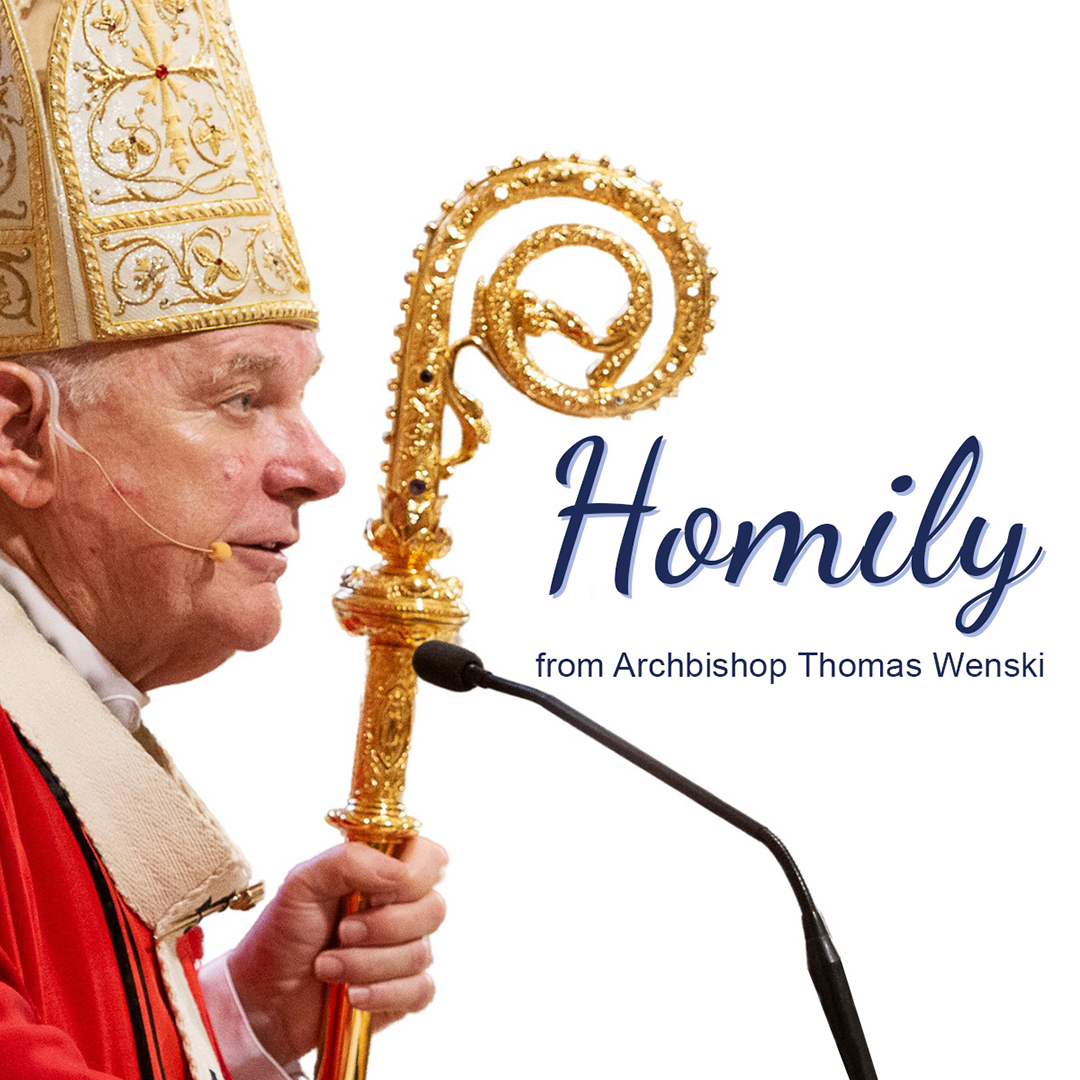By Archbishop Thomas Wenski - The Archdiocese of Miami
Archbishop Thomas Wenski preached this homily while celebrating Mass with archdiocesan school principals gathered for a meeting before the start of the 2024-25 school year, Aug. 2, 2024. The principals met at Immaculata La Salle High School and celebrated Mass next door, at St. Kieran Parish in Miami.
First of all, a warm welcome to all of you (and it is certainly warm outside on this second day of August). We have several new principals. May the Lord grant us a successful and fruitful year!
Whenever I visit a parish, I look for a copy of the parish bulletin. I can check what last week’s collection was. But more importantly, the bulletin lists the various ministries that are going on in the parish – and, thankfully, many parishes have many varied and active ministries – and some are quite amazing. But the most amazing ministry, by far, and perhaps the one that requires the most resources but at the same time is still one of the most effective ministries in evangelizing the families of our parishes is the parish school. I think it bears repeating, as principals you are running more than just a private school; you are in charge of a ministry, a life-shaping and a life-changing ministry. The parish school – and our high schools – should be viewed as ministries, ministries directed towards our families and our youth. They can be – and are effective means of evangelization, if we embrace our mission as Catholic educators and administrators.
In the gospel reading, Jesus goes home to Nazareth – where the townspeople think they know him. I think we might be in a similar situation today. Unlike those first Christians who announced Jesus Christ to people who have never heard of him, today we must announce Jesus Christ, not to people who have never heard of him and his Church but to people who think that they have – and what they think they know does not draw them closer either to Jesus or to the Church.
And so today it is not unusual to find people who define themselves as spiritual but not religious. Among these are those who define themselves as “nones” – with no religious affiliation; and it is increasingly common to find people who claim to be believers but do not belong to any church; and to find in our churches those who claim to belong but do not believe what the Church teaches.
I think this pretty much describes many, if not most, of our families in our schools today. As Pope St. Paul VI, Pope St. John Paul II, Pope Benedict XVI, and Pope Francis have said: we need a new evangelization – not new in its content, for Christ is the same, yesterday, today and forever, but new in its ardor, methods and expression”.
Catholic schools developed in our country at the end of the 19th and beginning of the 20th century, at a time when most Catholics in the United States were poor immigrants in a dominantly Protestant country that viewed these newcomers with more than a little suspicion. The bishops mandated that every parish have its school.
One reason was to assure a proper education for the children of those Italian, Polish or Irish newcomers (for like African American children in some of our public schools today, those children of immigrant Catholics were also victims of the soft bigotry of low expectations in the public schools of yesterday.) Another equally compelling, if not more compelling reason, was to assure that these children would be socialized into a Catholic ethos since back then public schools in America were essentially Protestant schools.
Public schools are no longer Protestant, but they are secular, and therefore often teach a reductive world view hostile to faith. So Catholic schools still play a crucial role in communicating to our young people a Catholic ethos or worldview that is available no place else.
And so, Catholic schools do still have a mission to evangelize our families and their children. Catholic education is about giving our students the means to make a good living, to do well; and it is also about helping them learn the ways of being good and living well.
Our schools should always be about excellence. We want these kids to be the best version of themselves possible which is perhaps another way of saying that we want them to realize the fundamental vocation of their baptism: We want them to be saints.
Catholic education, because it is based on the whole truth about the human person, our dignity and our destiny in the world (and beyond) helps to open the hearts of our young people wider and it helps to broaden the horizons of their minds so that there might be room for the Infinite, room for God. As I said, you principals, in collaboration with your pastors, are in charge of more than just a school; you are in charge of a life-shaping, life-changing ministry.
I thank you for embracing this work, this ministry of family evangelization. The sacrifice of parents and our parishes to support Catholic education will be well worth the price if our young people’s existence is no longer self-centered but rather directed towards others. This is fundamentally what Catholic education seeks to accomplish: to prepare our youth to be saints for the world by putting into practice with ever wider hearts and broadened minds what they know of the love of God so that the world will come to believe in Jesus Christ and the one who sent him.
After all, as Pope Benedict said when speaking of our mission as Catholics in the world: If we don’t give them God, we give them too little.

